- Home
- Susanna Kearsley
The Rose Garden Page 25
The Rose Garden Read online
Page 25
Mark was sitting at the table writing idly in a notebook while Susan, standing near the sink, chopped vegetables for one of her trademark huge salads. Her attention, though, appeared to be on Oliver, who lounged against the worktop not too far from her, still in his biking shorts and fitted shirt that showed the muscles of his arms and chest in perfect definition. The wind had dried his hair so that only the bits near his temples were still slightly damp from the effort of cycling the hilly road back from St Non’s.
He grinned as I came in. ‘I’m back.’
‘Like a bad penny,’ Claire said with affection, giving him a once-over. ‘Does your mother know you’re dressed like that?’
‘My mother bought the outfit,’ he returned, his wit as quick as ever, but Susan didn’t let him get away with it.
She smiled her teasing smile and asked, ‘No, really. Are you on the pull, or something? Trying to look all manly and athletic?’
Mark, from his seat at the table, drily commented that wearing Lycra shorts was not the best way to look manly.
‘That, dear brother,’ Susan told him, ‘is a matter of opinion.’
Their brief exchange of banter had been all the time I’d needed to shake off my momentary sense of being in the wrong place, at the wrong time. In Oliver’s defence I said, ‘He’s cycled over to St Non’s and back this morning.’
Mark glanced up at his friend and asked, ‘Crisis with one of the cottages, was it?’
‘Burst pipe,’ said Oliver. ‘Oh, and it was Susan’s plumber,’ he told me.
She looked at him, reddening slightly. ‘My plumber?’
‘Paul, from Andrews & Son. Had the pipe fixed in no time,’ said Oliver. ‘So I thought I’d just drop round on my way back—’
‘Conveniently at lunchtime.’ Claire met the full charm of his boyish smile with motherly indulgence. She asked Susan, ‘I suppose we can feed him?’
Susan thought it possible.
Oliver tried to look indignant. ‘I am answering a summons, as it happens.’
Claire glanced at me. ‘Oh, yes?’
‘I’m here to see Mark’s knife.’
Mark raised his head. ‘My what?’
‘Felicity said you had some old knife …’
‘Oh.’ The fog cleared. ‘That one. Hang on, I’ll get it.’
He rose and left us for a moment while Claire counted out the cutlery for five of us and started setting places at the table. ‘Oliver, what will you drink?’
‘Water, please.’
I heard Fergal’s voice speaking again in my mind. Me now, I would rather meet my thirst with ale and cider, same as everyone. It faded again, but when Claire set my own glass in front of me I was half-tempted to ask her for cider.
I didn’t, of course. But it seemed so much harder this time to fit back in the slot I belonged in. Especially here in the kitchen, where I spent so much of my time in the past, I found things didn’t feel right. I missed seeing Fergal’s black scowl and quick smile, and Jack rocking his chair on two legs with his back to the wall and his eyes full of mischief, and Daniel … I really missed Daniel.
‘Your hair looks amazing like that,’ Susan said to me, mixing her salad. ‘You ought to put it up more often.’
‘Thanks.’
Oliver confessed he hadn’t noticed. ‘You didn’t have it up this morning, did you, at the church?’
‘No. I …’ Lifting one hand, I self-consciously pushed in a hairpin more firmly. ‘I felt like a change.’
Susan teased us both, ‘Are you two having early morning trysts now in the church-hay?’
‘Right,’ said Oliver. ‘With Mr Teague about? Not likely. No, your PR wizard here was scouting out the final resting places of Trelowarth’s famous smuggling Butler brothers.’
Mark, returning with his treasure box in hand, said, ‘Them again?’
Susan said, ‘Well, it’s colour that we’re after, Mark, and smugglers do provide it. That’s what brings the tourists in.’
Mark shrugged and set the box down and we all leant in to take a look at his assorted treasures.
Oliver was taken with the musket balls, although he made a small correction. ‘If you found these in the cave, I’d think it much more likely that they came from a pistol than a musket. I can’t imagine someone having room to fire a musket in that space, they’d use a pistol at close range.’
I looked at the seven small metal balls lying so deadly and still on his palm.
‘Can’t you tell from the size of them what sort of gun they were fired from?’ I asked.
‘Well, not really. Both muskets and pistols were smooth-bored, they didn’t leave marks to identify, and because of how they worked, the balls and shot were smaller than the barrel of the gun, you had to leave a bit of room to wrap a bit of paper round them before loading. Standard navy issue muskets used a larger ball, but blunderbusses and some other muskets could use smaller shot, like these.’ He stirred the balls round with his finger. ‘But at a guess, I’d still say these came from a pistol, just because of where you found them.’
I was thinking of the pistol I’d seen Daniel tuck inside his belt last night when he’d gone to keep an eye on Jack, down at the Spaniard. Just last night …
My eyes closed briefly on the memory as I tried to focus on what Oliver was telling us.
‘I’ve got a matchlock pistol down at the museum that takes shot about this size.’
‘A matchlock pistol?’ Susan asked. ‘What, do you use a match to fire it?’
‘Not a match as we would think of it. A match in those days was a sort of … well, a sort of …’
‘Fuse,’ I said.
‘Exactly.’ Oliver’s glance praised my research. ‘A slow-burning fuse, that’s right. You have been swotting up, haven’t you?’
Mark took the dagger with care from the box. ‘Right then, Einstein, how old would this be?’
‘Wow,’ said Oliver, rolling the metal balls back where they’d come from and taking the dagger with reverence. ‘That’s really beautiful.’
Only a man who loved history, I thought, could find beauty in something so ruined by time. He turned it so the sunlight from the window caught the small bit of the handle that remained. ‘That’s shell, I think.’
Score one for Oliver. I waited, frankly curious to see how close he’d come in his assessment to the truth.
He said, ‘Now this could be a smuggler’s knife.’
‘Why’s that?’ Mark asked.
‘Well, someone who spent time at sea. They all had knives this size. A multi-purpose gadget, really, good for cutting rope or cutting food or eating with. You wouldn’t be without one on a ship. But this,’ he turned it to the light again, ‘is really lovely workmanship. You see here, if I hold it just like this,’ he said, and palmed the handle, ‘you would barely see the blade. Whoever made this knew what he was doing.’ Looking at it closely he considered Mark’s first question. ‘How old is it? Hard to say with this corrosion, but I’d hazard Restoration era maybe, from its shape. The 1660s, 1670s, somewhere in there.’
He’d impressed Mark. ‘That’s pretty precise.’
‘Yes, well. I have a thing for knives, actually. Care to sell this one?’ He knew what Mark’s answer would be, I could tell from the smile in his eyes.
‘Not much point,’ Mark said, taking the knife back and tucking it safe in the box with the rest of his treasures. ‘There wouldn’t be much value to it, not in that condition.’
If Oliver knew what the dagger’s true value was, he didn’t bother to share it. Instead he gave up with a shrug that made Claire give a cluck of her tongue and come over to study a tear in his sleeve.
‘You’ve a bad scratch under there,’ she told him. ‘Let me get a plaster.’
‘No, I’m fine,’ he reassured her. ‘It was just that blasted tree. You know, the one beside the greenhouse.’
‘Susan’s hawthorn tree.’ I pulled my mind deliberately away from Daniel’s dagger and my speculations, all unple
asant, as to how it might have ended up there in the cave below the Cripplehorn. ‘She’s just had all the shrubs around it cleared away.’
‘Well, thanks for that,’ he said to Susan, who replied, ‘It’s Cornish culture, idiot. We’re making it a cloutie tree, just like the one at St Non’s well. It’s great for tourists – let them tie a little strip of fabric on a branch and make a wish, like people did back in the old days. For luck.’
‘Ah.’ Oliver rubbed his sore shoulder. ‘You’re off to a grand start, then.’
As he helped himself to salad, something made me think to ask him, ‘Oliver?’
‘Yes?’
‘Have you ever heard tell of a tree called the Trelowarth Oak? A big old oak tree that once grew at that really sharp bend in the road?’
‘The Trelowarth Oak? Sure.’ With a wicked grin he said, ‘I actually do have an etching of that one, if you ever want to come look at it. Up in my sitting room.’
I let that pass. ‘What happened to the tree itself?’
He speared his salad. ‘Methodists.’
‘I’m sorry?’
‘Well, the local people thought the tree was magical, or something, and the Methodist minister wasn’t having any of it, so he had the tree chopped down.’
‘When was this?’
‘1800s sometime. I can look it up for you.’
Across the table Susan shook her head and said, ‘What silliness. They cut the whole tree down?’
‘They did. And burnt the stump and dug that out as well.’
But not the roots, I nearly said. They couldn’t have destroyed the roots.
The roots that, in the Celtic legends, bound two worlds together, so the tree became a doorway …
The sound of far-off laughter caught my ear – a man’s laugh – and I raised my head to look, and in that shadowed instant I could see the room begin dissolving into something else, and saw a shape like Fergal’s cross to where the open hearth had been … but then I blinked and everything was back the way it had been.
‘You all right?’ Beside me Oliver was frowning faintly with concern. ‘Got a headache, or something?’
‘Or something.’ I picked up my own fork and gave a tight smile. ‘But I’m sure it will pass.’
Another shadow swept across the window as the figure of a man went by, his footsteps falling hard along the path to the back door. A man dressed all in black.
CHAPTER TWENTY-SEVEN
A cold hand clenched my chest and made it difficult to breathe until I reassured myself that I was firmly in the present, with my friends still sitting round me, and the constable had not in fact crossed into my own time. The man who’d passed by was a stranger to me, taller than the constable and broader through the shoulders.
Oliver had seen him, too, and as the first knock sounded at the back door he pushed back his chair and rose. ‘I’ll get it.’
From the brief exchange of voices in the corridor I gathered both men knew each other, but when Oliver came through into the kitchen he looked straight at Susan first, then stepped aside. The man who followed him was ruggedly attractive in a way that made it difficult to judge his age. The only thing I could have said with certainty was that he wasn’t young – his well-cut auburn hair had turned to silver at his temples and his jawline had begun to lose the chiselled definition that it would have had when he was in his thirties.
He seemed to hesitate a moment, like the rest of them. Until Claire broke the tension with a smile of welcome. ‘Nigel. Good to see you.’
‘Claire. Mark.’ He greeted them both, gave a brief nod at me, and looked over my head. ‘Susan.’
Susan didn’t answer him, and when I saw her face and saw the way that she was looking at him, and the way that Mark and Claire and Oliver were watching her, I finally figured out who this must be: the man she’d been with up in Bristol. Her ex-boyfriend.
Nigel’s gaze stayed fixed on Susan till she found her voice.
‘Hello, Nigel. What brings you to Cornwall?’
‘I’m celebrating, actually.’ His smile was lopsided, disarming, and I watched as she responded to it with the instant understanding of someone who’d shared a longtime intimacy with this man and knew his moods and his expressions.
With a slowly spreading smile herself she guessed, ‘You got the promotion.’
‘I did.’
‘Well, that’s wonderful. Really it is. You deserve it.’
He said, ‘It means moving to London, of course. Thought I’d take a run up at the weekend and start looking round for a flat. I was hoping,’ he added, ‘that I might persuade you to come.’
She had to steel herself. I saw her do it, saw the silent effort that it cost her to resist him as she said, ‘Look, we’ve been through all this. And anyway, you don’t need me to help you choose a flat.’
‘Don’t I?’
‘Nigel,’ Susan began, but he wouldn’t be put off.
‘It comes to this,’ he said. ‘I love you. And I’m miserable without you.’
‘Nigel,’ Susan tried again.
‘Please, hear me out. I know you think we haven’t got a future, but I think you’re wrong. I want to prove it to you, if you’ll let me.’
Then in front of us, as though we had all disappeared and he and Susan were the only people in the room, he took a little velvet-covered ring box from his pocket.
‘Nigel.’ Susan’s voice had lost its force and faded to a level that was just above a whisper. She looked shaken by emotion as he crossed the room towards her.
‘Susan Hallett.’ Like the hero in a fairy tale, he got down on one knee and pried the lid up on the ring box as he asked her, ‘Will you marry me?’
‘It’s her decision.’ Mark reached a gloved hand among the thorned branches and with his shears snipped off an unwanted shoot that had sprung from the roots of a red-petalled rose. ‘No one else’s.’
Two hours had passed now since Nigel had turned up and made his proposal, and Susan and he had gone off for a drive to discuss things. Like Mark, I was filling the afternoon hours with work while we waited for them to come back, though I realised my efforts to photograph some of the lovely old roses now coming into bloom here in the Quiet Garden might all be for nothing if it turned out Susan answered ‘yes’ and moved away to London.
‘She couldn’t run her tea room, then,’ I said, ‘and she’s put so much work into it.’
Mark shrugged and let the shoot fall with the other ones discarded at his feet. ‘It wouldn’t be the first time a project here has been abandoned. Dad did everything in stops and starts. That’s why we have a glasshouse,’ he reminded me, ‘and why it’s sitting empty.’
I’d forgotten about Uncle George’s unsuccessful foray into rose breeding. ‘Well, at least he tried,’ I said in his defence. ‘And now you have the greenhouse.’
‘So we do. And that, as well,’ he added, with a nod down at the sunburst coloured rose beside the one that he was tending. ‘My dad’s one and only hybrid.’
‘Really?’ Lifting my camera, I snapped off a photograph. ‘What is its name? And if you tell me something Latin, Mark,’ I warned as he prepared to speak, ‘I swear I’ll have to hit you.’
‘It doesn’t have a Latin name. Or any name, officially.’
‘Why not?’
‘Dad never gave it one. It was still being field-tested when he died.’ He looked at me a moment and decided, ‘I suppose that we could name it, if you like. It only takes a bit of paperwork.’
‘What would you call it?’
‘You choose.’
I touched a leaf with gentle fingers. ‘You can name them after people, can’t you, roses?’
He could see it coming. ‘Eva.’
‘Can’t you?’
‘Yes.’
I raised the camera for a second time to take another picture of the fragile-looking rose that held the colours of the setting sun. ‘Let’s name it for Katrina, then.’
I heard his silent argument and answered i
t.
‘It’s not the same,’ I said, ‘as using her name for publicity. You know it’s not. She loved this place, she loved these gardens, and it’s just a way of seeing she’s remembered.’
Mark’s eyes told me just how likely he considered it she’d ever be forgotten, but he thought it over. ‘Right, then,’ he said finally. ‘The Katrina Ward it is.’
The garden walls were built to block the wind and yet a dancing breeze brushed past my cheek as though Katrina were announcing her approval.
I’d been feeling her around me very strongly all this afternoon, as though she felt I needed my big sister. And I did. Above all, I needed to borrow a bit of her courage.
I still felt off-balance because of my run-in with Constable Creed in the stable yard only this morning. I knew I might not be so lucky the next time we met. Even if I managed not to disappear in front of him, he might make good his threat and come at me to get to Daniel. Odds were, if I left Trelowarth I’d remove that risk.
And yet, I’d risk another kind of pain by leaving.
If I’d wanted proof of that, I’d had it when I’d looked at Daniel last night, and he’d looked at me, and suddenly my choices had seemed more confused than ever.
Susan was facing that sort of a choice now, I thought. I’d seen the conflict in her face and heard it in her voice, and knew her heart was being pulled in two directions. And it occurred to me that there was someone else here who had faced that same choice long before myself or Susan, so I went off now in search of her advice.
I knew where I’d find Claire. I heard the lovely mellow tones of the piano long before I stepped inside the house, and knew that she was in the big front room. I went in quietly. I’d always loved to watch Claire play. The music took her so completely, shaped her mood and flowed from her so easily it seemed to be her own invention, her own voice. I recognised the peaceful, almost wistful notes of Chopin, and they seemed to be so perfectly in tune with my own feelings at the moment that I didn’t interrupt. Instead I focused my attention on the bookshelves, searching out with idle fingertips the worn spines of the old books that my mother had once given Uncle George.

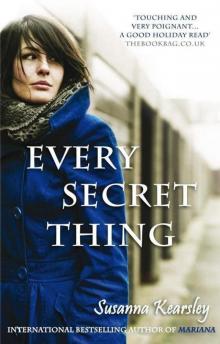 Every Secret Thing
Every Secret Thing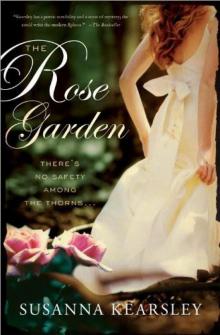 The Rose Garden
The Rose Garden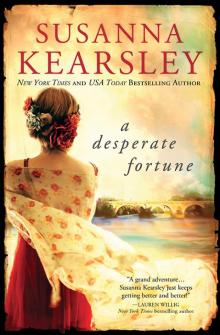 A Desperate Fortune
A Desperate Fortune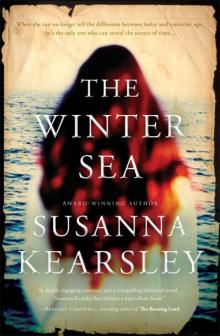 The Winter Sea
The Winter Sea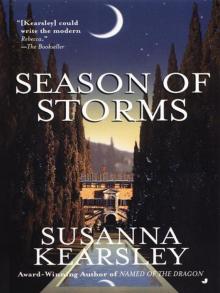 Season of Storms
Season of Storms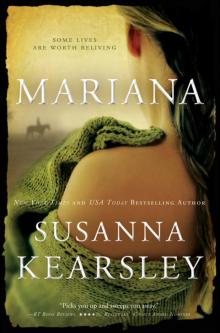 Mariana
Mariana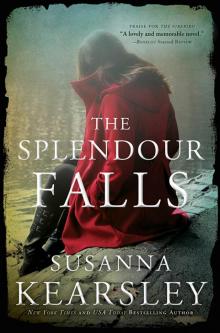 The Splendour Falls
The Splendour Falls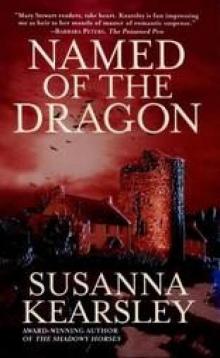 Named of the Dragon
Named of the Dragon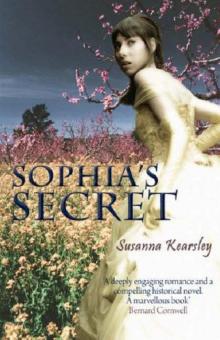 Sophia's Secret
Sophia's Secret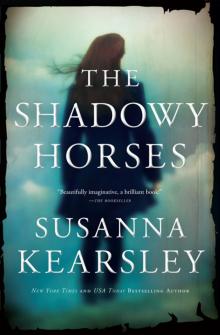 The Shadowy Horses
The Shadowy Horses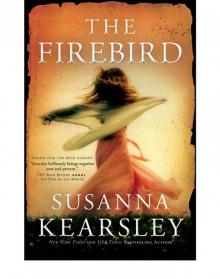 The Firebird
The Firebird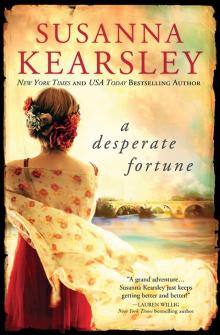 Desperate Fortune
Desperate Fortune